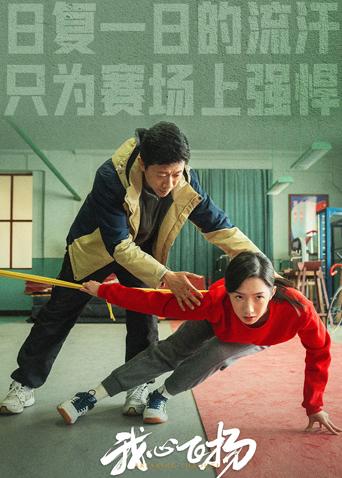1930年代,动漫动荡的芝加哥时常被强盗集团骚扰。乔(托尼•柯蒂斯)和杰利(杰克•莱蒙)本是乐团成员,动漫两人因偶然目睹盗匪史巴克的手下在车库内射杀告密者而被穷追不舍。走投无路之下,他们男扮女装加入一女性乐团,并随该团来到迈阿密。该团中有位名叫秀珈(玛丽莲•梦露)的异常美丽性感女郎,乔晓得她一心想钓有钱人时,便化身石油王的公子企图得到她的芳心;另一面,杰利也对秀珈情有独钟,可是他却得到一位不知他是男儿身的富翁的不断纠缠,笑话迭生。不久,乔和杰利又遇史巴克一伙,只得再次逃亡,场面更加逗笑。
1930年代,动漫动荡的芝加哥时常被强盗集团骚扰。乔(托尼•柯蒂斯)和杰利(杰克•莱蒙)本是乐团成员,动漫两人因偶然目睹盗匪史巴克的手下在车库内射杀告密者而被穷追不舍。走投无路之下,他们男扮女装加入一女性乐团,并随该团来到迈阿密。该团中有位名叫秀珈(玛丽莲•梦露)的异常美丽性感女郎,乔晓得她一心想钓有钱人时,便化身石油王的公子企图得到她的芳心;另一面,杰利也对秀珈情有独钟,可是他却得到一位不知他是男儿身的富翁的不断纠缠,笑话迭生。不久,乔和杰利又遇史巴克一伙,只得再次逃亡,场面更加逗笑。

回复 :1953年的夏天,晚年丘吉尔遭受了一次危及生命的中风。党中觊觎首相之位的人蠢蠢欲动,他的家人也望其退位安享晚年。而丘吉尔本人,仍然希望自己以首相身份参加国际会议,为世界和平作出最后一次努力。
回复 :彼得·格林纳威1987年作品,英国学院奖最佳编剧、最佳美术指导提名;戛纳参赛片。导演是画家出身,其作品的影像风格自然都是别具一格的色彩斑斓。美国建筑师Stourley Kracklite和他已经怀孕的年轻妻子Louisa来到罗马组织一个纪念18世纪富于幻想力的法国建筑 师Etienne-Louis Boullée的展览。然而Kracklite却被腹疾所折磨,Louisa则与身为展览赞助者的潇洒的年轻建筑师Caspasian Speckler眉来眼去。电影有个特别的焦点,肚皮——建筑师生病的肚皮和妻子怀孕的肚皮,圆滚滚的形状直让人想起Boullée设计的那些圆顶建筑……
回复 :It has been said that most great twentieth century novels include scenes in a hotel, a symptom of the vast uprooting that has occurred in the last century: James Ivory begins Quartet with a montage of the hotels of Montparnasse, a quiet prelude before our introduction to the violently lost souls who inhabit them.Adapted from the 1928 autobiographical novel by Jean Rhys, Quartet is the story of a love quadrangle between a complicated young West Indian woman named Marya (played by Isabelle Adjani), her husband Stefan (Anthony Higgins), a manipulative English art patron named Heidler (Alan Bates), and his painter wife Lois (Maggie Smith). The film is set in the Golden Age of Paris, Hemingway's "moveable feast" of cafe culture and extravagant nightlife, glitter and literati: yet underneath is the outline of something sinister beneath the polished brasses and brasseries.When Marya's husband is put in a Paris prison on charges of selling stolen art works, she is left indigent and is taken in by Heidler and his wife: the predatory Englishman (whose character Rhys bases on the novelist Ford Madox Ford) is quick to take advantage of the new living arrangement, and Marya finds herself in a stranglehold between husband and wife. Lovers alternately gravitate toward and are repelled by each other, now professing their love, now confessing their brutal indifference -- all the while keeping up appearances. The film explores the vast territory between the "nice" and the "good," between outward refinement and inner darkness: after one violent episode, Lois asks Marya not to speak of it to the Paris crowd. "Is that all you're worried about?" demands an outraged Marya. "Yes," Lois replies with icy candor, "as a matter of fact."Adjani won the Best Actress award at Cannes for her performances in Quartet: her Marya is a volatile compound of French schoolgirl and scorned mistress, veering between tremulous joy and hysterical outburst. Smith shines in one of her most memorable roles: she imbues Lois with a Katherine-of-Aragon impotent rage, as humiliated as she is powerless in the face of her husband's choices. Her interactions with Bates are scenes from a marriage that has moved from disillusionment to pale acceptance.Ruth Prawer Jhabvala and James Ivory's screenplay uses Rhys's novel as a foundation from which it constructs a world that is both true to the novel and distinctive in its own right, painting a society that has lost its inhibitions and inadvertently lost its soul. We are taken to mirrored cafes, then move through the looking glass: Marya, in one scene, is offered a job as a model and then finds herself in a sadomasochistic pornographer's studio. The film, as photographed by Pierre Lhomme, creates thoroughly cinematic moments that Rhy's novel could not have attempted: in one of the Ivory's most memorable scenes, a black American chanteuse (extraordinarily played by Armelia McQueen) entertains Parisian patrons with a big and brassy jazz song, neither subtle nor elegant. Ivory keeps the camera on the singer's act: there is something in her unguarded smile that makes the danger beneath Montparnasse manners seem more acute.

